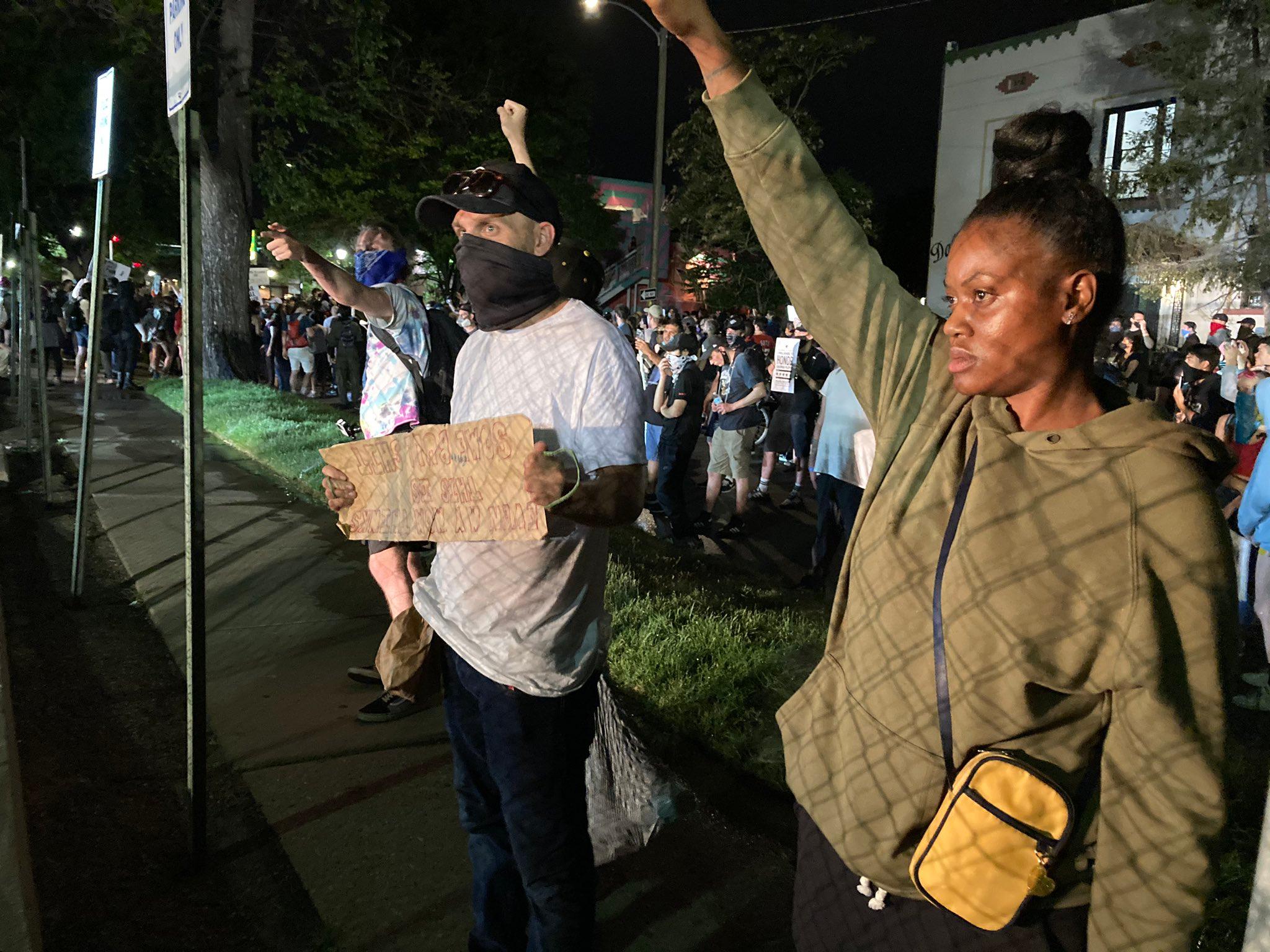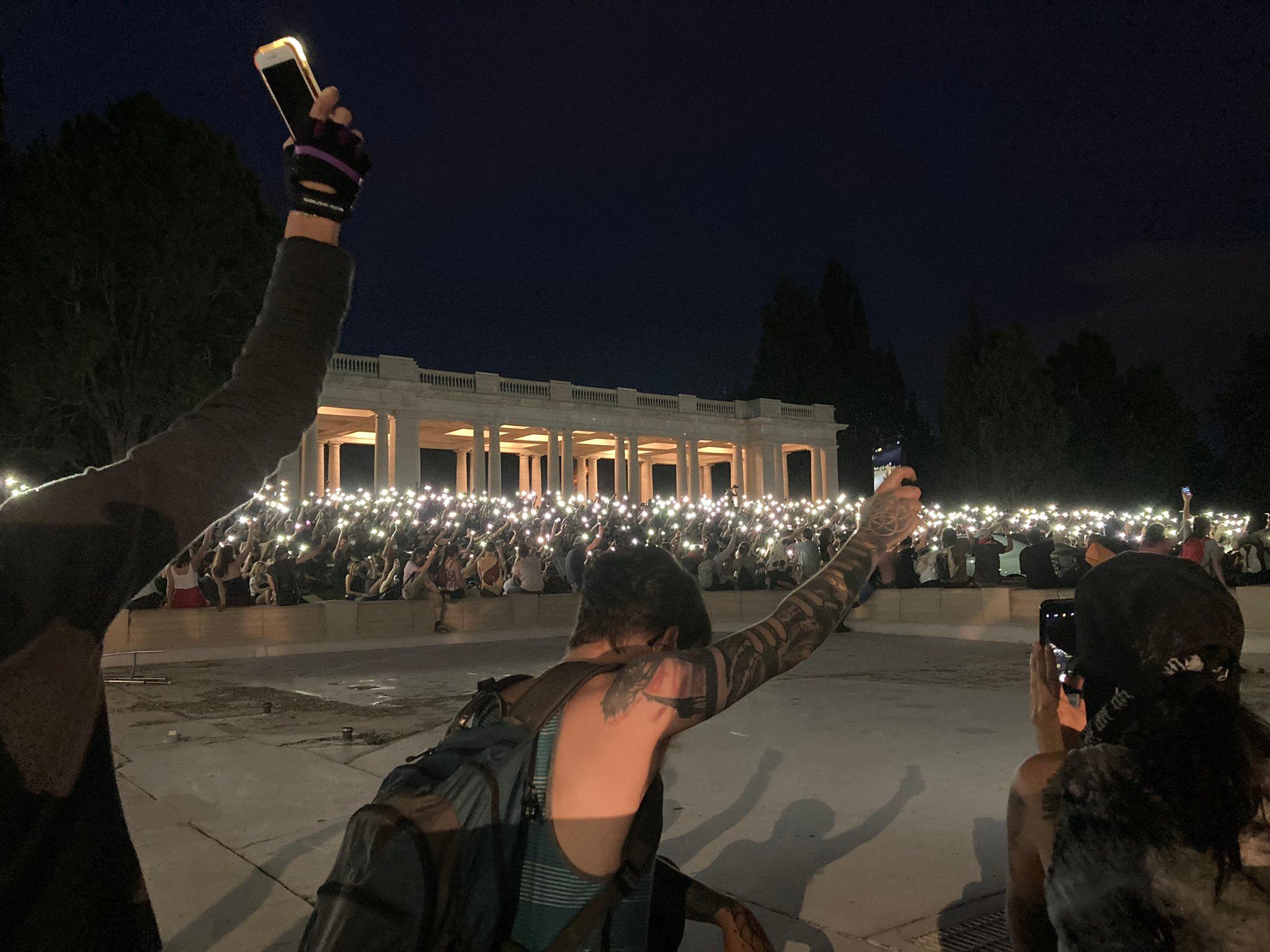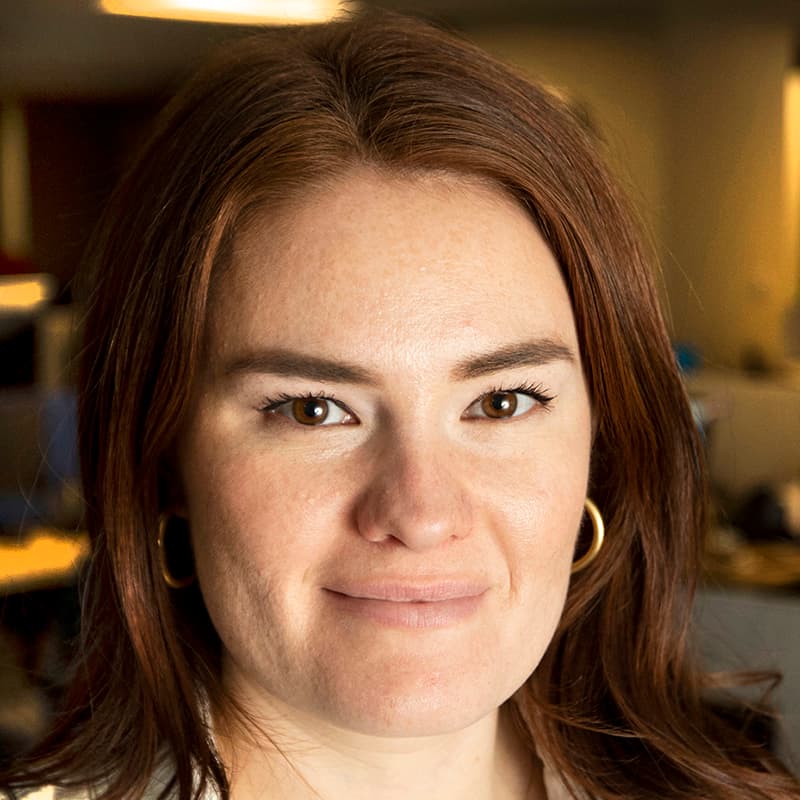Updated June 6, 12:49 a.m.
It's been more than a week since protesters first gathered at the State Capitol, and they aren't showing signs of letting up.
Despite a nearly week-long citywide curfew meant to deter crowds, thousands have gathered at the Capitol every night since May 28 to protest racism and police brutality, sparked by the death of George Floyd. The curfew ended today at 5 a.m., and the city said it won't extend it.
A "United Together Prayer Vigil" happened around 1 p.m. Friday, hosted by the Episcopal Church in Denver. A Black Lives Matter-sponsored event called "A Time for Black Healing" kicked off at 2 and will last at least through 8 in Civic Center Park. The "Colorado Attorneys Against Police Violence" began at 5:15 at the Capitol.
By 6:45 p.m., more than a thousand people gathered on the lawn west of the Capitol to listen to speakers.
Claire Ragusin joined the demonstrations early in the day, speaking during an open mic session. Ragusin, who is from the Denver area, has been attending the protests since last Saturday. She says she was tear gassed on Saturday and people near her were hurt.
She says the atmosphere of the protests has changed a lot over the past week.
"There was this air of seriousness to it," she said of last week's protests. On Friday, she said the protests felt much more relaxed. "It feels like that seriousness and that graveness of us marching to end something systemic has ended. And it seems to be less about something systemic."
She said speakers focused more on unity. "We're talking about how we are all one," she said. "Don't get me wrong, I would love to live in a world where that is seriously happening. But I think to get that, we have to recognize these systemic issues."
At 8 p.m. a large group of protesters left the Capitol lawn and began to march.
People marched south to Cheeseman Park, accompanied by the Denver-based Brothers of Brass. The brass band led people in chants and played music as they walked.
Once in the park, the crowd gathered and held a moment of silence for Breonna Taylor, a young woman killed by police after they entered her apartment in Louisville, Kentucky, in March. Today would have been her 27th birthday.
Hundreds of people then marched from the park towards the police station on North Washington Street. As they neared the station, protesters chanted, "I can't breathe." A woman with a loudspeaker told the people marching that they couldn't resolve their issues at the Capitol. The problem, she said, was at police stations.
Not long before, a federal judge issued a temporary restraining order, restricting the use of chemicals and projectiles on peaceful protesters.
Protesters stood outside fencing that ringed the station, chanting and passing a megaphone, while police officers stood inside the fence and watched. One man called for the chief to come out and listen to protesters.
Protesters stood outside fencing that ringed the station, chanting and passing a megaphone, while police officers stood inside the fence and watched. One man called for the chief to come out and listen to protesters.
That never happened, but unlike at previous protests, police did not take action against people in the street. More conflict appeared in the ranks of the protesters themselves. One leader, Neil Yarbrough, had led chants encouraging peace and unity through the afternoon and evening -- and that continued outside the police station.
"If y'all haven't noticed, since I walked with the cops, nobody's gotten pepper sprayed," he said. "I'm fighting for all y'all."
Yarbrough said he wants young black kids to know they can grow up to be police officers. When he noted that he walked next to Denver police officers earlier in the week, people in the crowd booed him.
"I'm trying my best here," he said, sounding exasperated.
He handed the megaphone over and the next speaker, who did not identify himself, said, "Police are not our friends. The police are our enemies. It is important that we cannot cooperate with the police."

The late-night debate reflected growing tensions expressed on social media and among those gathered about the best way to fight for change, whether it's working with the city and police or going outside it to press for more radical change. Over the course of the day's open mics, speakers expressed divergent views on the path forward for combating racism and police violence.
As midnight neared, one last chant echoed toward Colfax before the crowd slowly left.
"We'll be back, we'll be stronger. Can't ignore us any longer."
Denver police responded after midnight to a stabbing a few blocks from the Capitol, although it's was not immediately clear whether it was connected to the protests or not. One person was injured.
Editor's Note: An earlier version of this story misattributed a quote about police, "They're just wearing a suit; they are still human," to Neil Yarbrough.














